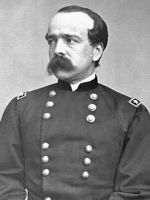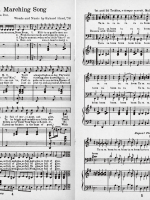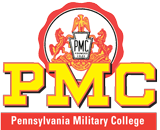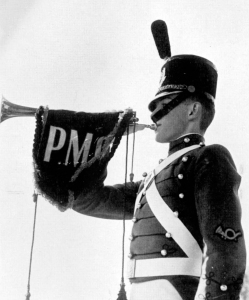 The iconic bugle call “Taps” is possibly the most familiar melody to those who have served their country. When played, these twenty-four notes produce an emotion that lingers in the hearts and minds long after its tones end.
The iconic bugle call “Taps” is possibly the most familiar melody to those who have served their country. When played, these twenty-four notes produce an emotion that lingers in the hearts and minds long after its tones end.
According to Taps historian M/Sgt Jari Villanueva, the bugle call was intended to signal lights out. While encamped at Harrison’s Landing during the Peninsular Campaign of 1862, Union General Daniel Butterfield (Third Brigade, First Division, Fifth Army Corps, Army of the Potomac) sought to replace the bugle call Extinguish Lights. He felt the call was too formal. He called Oliver Willcox Norton, the brigade bugler, and the two men worked together on a new call. Taps was first sounded in July 1862, and quickly spread to other units. The first use of Taps at a military funeral occurred when Captain John C. Tidball of Battery A, 2nd Artillery, ordered it played for the burial of a soldier killed in action. This custom was quickly adopted throughout the Army of the Potomac. In 1874, the U.S. Army officially recognized Taps.
Almost immediately words were added. The first were, “Go To Sleep, Go to Sleep.” The most famous and possibly the most recognized set of words to Taps has been attributed to Rukurd Hurd, an 1878 graduate of Pennsylvania Military Academy.
Day is done, gone the sun,
From the lake, from the hills, from the sky.
All is well. Safely rest.
God is nigh.
Fading light dims the sight,
And a star gems the sky, gleaming bright,
From afar drawing nigh,
Falls the night.
Dear one, rest! In the west
Sable night lulls the day on her breast,
Sweet, goodnight!
Now away, to thy rest.
Love, sweet dreams! Lo the beams
Of the light fairy moon kiss the streams;
Love, goodnight!
Ah, too soon! Peaceful dreams!
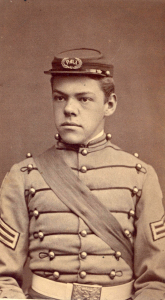 Rukurd Hurd left PMA in 1878 with a degree in civil engineering and settled in Minnesota. Although he was the secretary of the Minnesota State Tax Commission, he was also a consulting engineer for the United States Bureau of Mines. In 1911, he wrote Hurd’s Iron Ore Manual of the Lake Superior Region, and was recognized to be one of the leading mining experts in the country. During World War I, Hurd was a Major in the Engineer Reserve Corps and in charge of the Division of Statistics and Reports. In addition to composing the lyrics for Taps, Hurd wrote the music and words to three cadet songs: Rally (in memory of Theodore Hyatt), PMC Marching Song, and PMC Cadet Ley (dedicated to Charles Hyatt).
Rukurd Hurd left PMA in 1878 with a degree in civil engineering and settled in Minnesota. Although he was the secretary of the Minnesota State Tax Commission, he was also a consulting engineer for the United States Bureau of Mines. In 1911, he wrote Hurd’s Iron Ore Manual of the Lake Superior Region, and was recognized to be one of the leading mining experts in the country. During World War I, Hurd was a Major in the Engineer Reserve Corps and in charge of the Division of Statistics and Reports. In addition to composing the lyrics for Taps, Hurd wrote the music and words to three cadet songs: Rally (in memory of Theodore Hyatt), PMC Marching Song, and PMC Cadet Ley (dedicated to Charles Hyatt).
